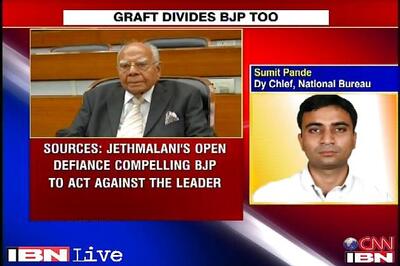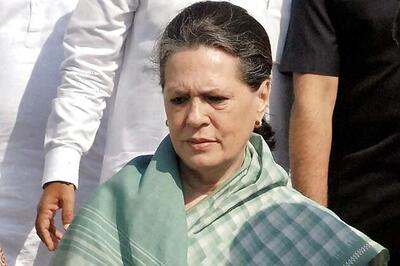
views
A Karnataka government circular issued on August 12 ordered all its departments, boards, corporations, public sector units and universities to withdraw all their deposits and investments in the State Bank of India (SBI) and the Punjab National Bank (PNB) and stop transacting any business with these institutions.
According to the circular, Rs 12 crore belonging to the Karnataka Industrial Area Development Board (KIADB) and Rs 10 crore of the Karnataka State Pollution Control Board (KSPCB) were blocked by PNB and SBI respectively for many years owing to scams in these two banks.
Latest Update: Hold for 15 Days
The Karnataka government on Friday kept its circular in abeyance for 15 days, which prohibited all business transactions with the SBI and the PNB.
The decision came after Chief Minister Siddaramaiah considered the two banks’ requests.
“After considering the banks’ requests, the Honorable Chief Minister has directed officials of the Finance Department to keep the circular in abeyance for 15 days,” the state government said in a release.
It said that putting the previous circular on hold “will allow the banks sufficient time to address the issues and redress the concerns of the government.” The government is committed to ensuring transparency and accountability in all its dealings, said the statement.
“We will continue to monitor the situation and take appropriate action to protect the interests of all stakeholders,” it added.
Reasons For August 12 Circular
Explaining the circumstances, the state government said that based on the observations made by the Public Accounts Committee on July 2 and August 6 and the audit findings included in the Comptroller and Auditor General’s report, the government decided to issue the circular on August 12, directing all departments to withdraw their deposits and restrict further deposits in all branches of SBI and PNB.
This action was taken in response to the alleged fraud in the bank branches, which resulted in the non-repayment of fixed deposits made by the KSPCB and the KIADB, the statement said.
Despite prolonged correspondence and meetings, these issues remained unresolved since 2012-13, the government said.
Issue
The order had come after the denial to redeem Rs 12 crore deposited by the KIADB following a scam involving bank employees.
The August 12 circular said the meeting with the bank officials did not yield any result and the matter is now sub judice.
Similarly, Rs 10 crore deposited by the KSPCB was not returned by the bank owing to a scam by the bank officials, the circular said.
The finance secretary P C Jaffer (budget and resource) said in the circular that the Auditor General too had objected to it.
“In this background, it is informed through this circular that the state government’s departments, public sector units, corporations, boards, local bodies and universities and other institutions should withdraw all the deposits/investments made in all the branches of the State Bank of India and the Punjab National Bank and no deposits/investments should be made in future,” the circular read.
The government had also directed the government institutions to close their accounts in these two banks and submit the certified closer report and send details of deposits and investment reports in the prescribed format to the finance department by September 20, 2024.
Banks’ Response
State Bank of India and Punjab National Bank said they are engaged with the state for an “amicable resolution” on the matter.
“As the matter is currently subjudice, we are unable to provide any specific comments at this time. However, we remain in ongoing discussions with the Government of Karnataka to resolve the issue amicably,” the SBI statement said.
SBI’s peer Punjab National Bank, also had a similar statement and pointed out that it will not be prudent to offer a specific comment on the matter.
“The Bank is committed for an amicable resolution of the matter and is in discussion with the Government of Karnataka,” the PNB statement said.
The ban by one of the most prosperous states in the country comes at a time when the banking system is reeling under a “war for deposits” where challenges on liability accretion dominate all discussions.




















Comments
0 comment